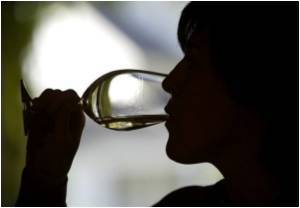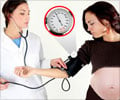A recent study has pointed out that maternal binge drinking during pregnancy causes more damage to children born to older drinking mothers.

The researchers studied the factors that may increase the risk of FASD - maternal age.
"In this study, we showed that older women were also likely to drink more often during their pregnancy than younger women. If older women drink more during pregnancy, their fetuses will be at greater risk for FASD." said Lisa M. Chiodo, of Wayne State University.
"Our clinical experience has shown that children born to older alcoholic mothers display greater cognitive-behavioral deficits and more physical anomalies than those born to younger alcoholic mothers," said Piyadasa W. Kodituwakku of the University of New Mexico.
"The moderating effect of maternal age on the degree of alcohol-induced damage can clearly be seen in children born to the same mother who continued to drink, particularly to binge drink.
"In these families, the younger children tend to exhibit more physical anomalies and greater cognitive deficits than older children," Kodituwakku said.
Advertisement
The researchers examined binge drinking, smoking, and the use of cocaine, marijuana and opiates among the mothers. At seven years of age, the children completed a Continuous Performance Test, and their teachers completed the Achenbach Teacher Report Form.
Advertisement
"Although not conclusive, this finding may be due to older moms drinking for longer periods, greater alcohol tolerance, and having more alcohol-related health problems - all leading to higher levels of alcohol in their fetuses," he said.
"More specifically, the children born to older mothers - those aged 30 or older - showed more deficits than those born to younger mothers (age 29 and younger).
"Analyses of specific attentional measures revealed that children born to older mothers who had a binge pattern of drinking were more cautious and consequently slower in responding on the Continuous Performance Task, and made more errors," Kodituwakku said.
In other words, he said, maternal age and binge drinking interactively contribute to attentional problems in alcohol-exposed children.
"The finding that binge drinking in older women is associated with a higher risk of alcohol-induced brain damage in the offspring has implications for the development of programs for prevention of FASD," added Kodituwakku.
The findings of the study were published on Early View.
Source-ANI















